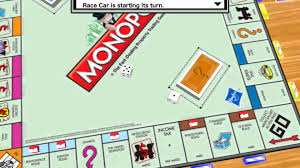
As a rule of thumb, I never purchase a book without reading the first three pages. The only exception to that rule is anything written by John Ortberg or Max Lucado. Initially, I subjected them to the three-page rule, but over the years I have discovered that if they write it, I want to read it.
Of course, sometimes the title draws me in. For example: “When The Game Is Over IT ALL GOES BACK IN THE BOX” written by John Ortberg was a must have. If I needed more proof, all I had to do was read the first three paragraphs. Actually, the purchase was wrapped up after reading the first line. It stated: “My grandmother had just gotten out of jail”. My first thought was: “You’ve got to be kidding?” My second thought was: “Good for you! Most people would try to keep that a family secret.” I was impressed that Ortberg had the self-confidence and maturity level to be totally transparent.
In the first three paragraphs, John shares a different light on the story. It was not as I perceived it to be. He says of his grandmother: “She was a roll away from the yellow properties. And the yellow properties meant trouble. They were mine. And they had hotels. And Gram had no money. She had wanted to stay in jail longer to avoid landing on my property and having to cough up dough she did not have, but she rolled doubles, and that meant her bacon was going to get fried.
“I was ten years old sitting at the Monopoly table, I had it all – money and property, houses and hotels, Boardwalk and Park Place. I had been a loser at this game my whole life, but today was different, and I knew it would be.
“Today I was Donald Trump, Bill Gates, Ivan the Terrible. Today my grandmother was one roll of the dice away from ruin. And I was one roll of the dice away from the biggest lesson life has to teach: the absolute necessity of arranging our life around what matters in light of our mortality and eternity. It is a lesson that some of the smartest people in the world forget but that my grandmother was laser clear on”.
The mention of Monopoly took me back to decades ago. It was one of the games we played during childhood. It captivated our attention for hours. At some level, it represented the world of make believe. After all, the ability to have the mindset of a real estate tycoon and entrepreneur with the wherewithal to function free of the limitations associated to childhood was in and of itself exciting. Who wouldn’t want to be master of the board? In the process of buying and selling, in the make believe world of children, one couldn’t help but wonder is this the way it is done in real life?
Like I said, my familiarity with Monopoly goes back six plus decades ago. Who would have thought it would still be a popular game today? Surprisingly, the game was actually created in 1903. It was designed as a way to demonstrate that an economy that rewards wealth creation is better than one in which monopolist work under few constraints. The game also supported the economic theories of Henry George and his ideas concerning taxation.
Parker Brothers first published the current version of the game in 1935. It was subtitled: “The Fast-Dealing Property Trading Game”. Players roll the dice and move around the game-board with an opportunity to buy or trade properties. There is also the possibility of purchasing houses and hotels and charging rent to other players who have the misfortune of rolling the dice and landing on your property.
Location, location, location is part of the landscape. The most expensive piece of property on the Monopoly Board was inspired by the Atlantic City Boardwalk in New Jersey. Ownership of “Boardwalk” is a high commodity in the game. Located between the “Go” and “Luxury Tax” spaces, “Park Place” completes the most desired neighborhood. If you have the good fortune to own both pieces of property, the rent is doubled. For every hotel rented on Boardwalk, located in the prestigious dark blue property set, the owner receives $2,000.
I guess in the make believe world of children pondering the mystery of adulthood, it is easy to give thought to what really is most important in life. Does it relate to the acquisition of large holdings or properties? Is it the accumulation of great wealth? Is it the ability to trade-up and be upwardly mobile? Is it about the acquisition of things, a fast car, a large home, and the affordability of travel? Does it relate to being upwardly mobile in one’s job, accumulation of vacation hours and benefits, free time for adventure, or is it something more?
From the vantage point of my elementary school years, I remember the television show “The $64,000 Question. Though our family never did without the basics, I remember fantasizing as a child that $64,000 would dramatically alter our living situation. I was willing to be master of the board, take the money and make purchases for the well being of our family. Of course that kind of opportunity never presented itself.
So my questions are these:
- In what way is life similar to the game of Monopoly?
- Is a person value defined by acquisition, financial portfolio and power status?
- Is it possible to be successful and totally out of the ballpark concerning things that have lasting value and impact?
All My Best!
Don
[To Be Continued Tomorrow]